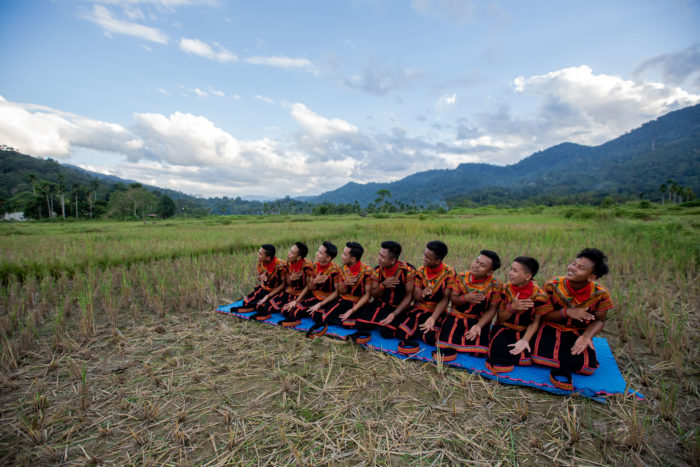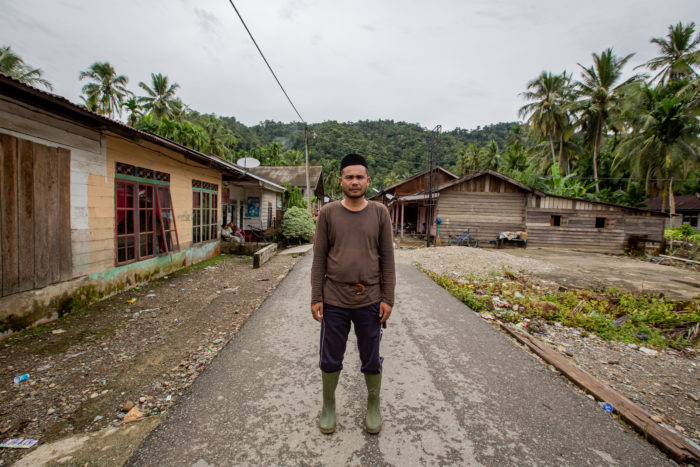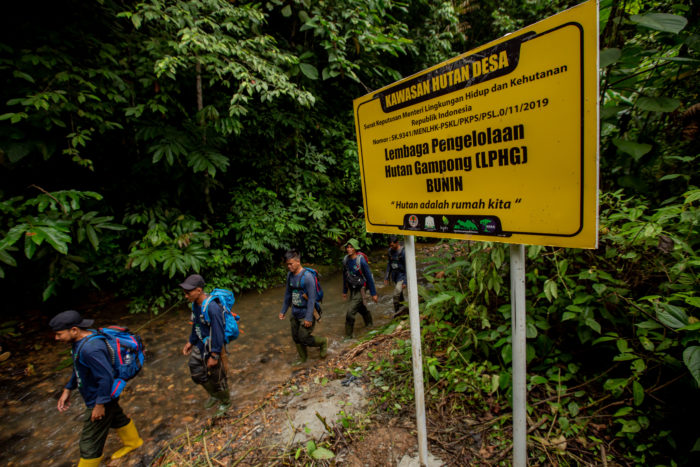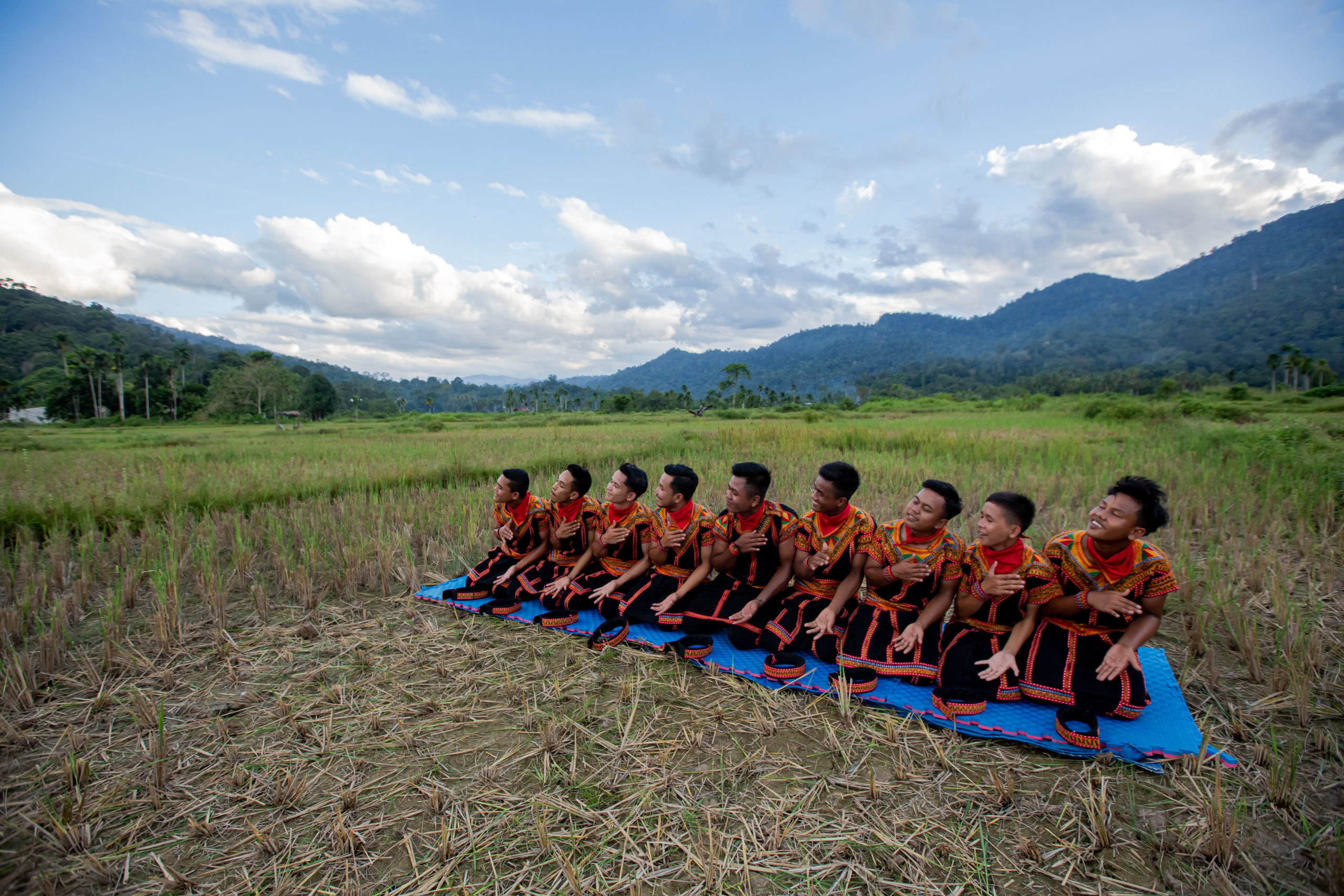A new video tells the story of the Indigenous community of Bunin, in the Leuser Ecosystem, as they defend their forest against development
The Leuser Ecosystem in Sumatra, Indonesia is a world-class wonderland covering over 6.5 million acres of intact rainforest. It is a hotspot for biological diversity and is a global carbon storage powerhouse. For millions of local and Indigenous people, the forests of the Leuser are their homes, hunting grounds, and ceremonial lands. Through carefully managing their forests, they ensure the survival of their community and their culture. Yet this amazing place remains largely unknown to the world, a vulnerability it can no longer afford.
A recent video produced by Rainforest Action Network (RAN) documents the voices of the forest community in Bunin, Serbajadi, in the province of East Aceh. This community has fought for the rights to their lands for decades and recently they secured legal recognition of their lands and village forests by the government of Indonesia. After years of effort, the community should now be able to keep their forest standing while struggling to protect their village lands that overlap with an area allocated by the government to a palm oil company called PT. Tegas Nusantara.

Bunin Village is located upstream of the Tamiang River in East Aceh, Sumatra, Indonesia. For millennia the Gayo people have fought to preserve their customary land. Credit: Rifky/RAN.
“We have been here since our ancestors, and customary rules have been established to protect the forest. This rule is not to encroach and destroy the forest. When the fasting month and Eid are coming, many people here go to the forest looking for Dragon’s blood, Damar resin, Rattan and Cinnamon. So we went to the forest looking for extra money for daily life,” said Mustakirun, the head of the Bunin Village.

In 2019, the Bunin community succeeded in securing legal recognition for their right to manage their 6,870 acres of lands as village forest. Within the approved area, another 2,938 acres were set aside as a protected forest and the remaining area of 3,931 acres are used to develop programs for community livelihood and ecotourism through the Village Forest scheme, which falls under the Indonesian Governments’ Ministry of Environment and Forestry program on expanding social forestry.

Village Forest Management Institution (Lembaga Pengelola Hutan Gampong/LPHG) rangers patrolling to protect their forests from encroachment and illegal logging. The village forest area is recognized by the government through a social forestry scheme. Credit: Rifky/RAN
Unfortunately, even with this official recognition, the community still faces threats and uncertainty, as PT. Tegas Nusantara had previously been given a permit by the government to use part of their village lands to establish a palm oil plantation. The community continues to oppose the development of palm oil plantations on their lands. To this day, they have refused to give their consent to the company that intends to clear the forests on their community territory to make way for a palm oil plantation.
PT. Tegas Nusantara was allocated almost 13,000 acres of land for palm oil development in 2002. Since April 2016, the standing forests remaining in the areas under its management have been reduced from 7438 acres to 6933 acres ––meaning almost 500 acres of forests have been destroyed under its watch. In early 2019, RAN recorded approximately 25 acres of forest had been cleared inside PT. Tegas Nusantara’s concession. More recently, illegal logging has persisted, with small areas being destroyed most months. The Bunin community continues to advocate for their rights to protect and manage their forests and to get part of their lands back so it is not cleared to establish a palm oil plantation.
Since 2018, the Bunin community has been appealing to local, provincial and national governments to resolve the conflict over its customary lands. Their appeals to the central government for a land certificate have been refused due to the East Aceh Land Agency stating that their lands are controlled by PT. Tegas Nusantara, given it had been issued a permit to develop a plantation on part of their lands. Last year, the local government sent a letter to the national government which asked them to work together with the local government to review the permit of palm oil companies in the East Aceh regency, including the permit allocated to PT. Tegas Nusantara.
There is hope that collaboration between the governments can resolve the conflicts resulting from the allocation of the Bunin Village’s customary lands to PT. Tegas Nusantara and that all parties can agree on the boundaries of community lands, protected forest areas, and lands for palm oil development. It is critical that governments intervene to hold companies like PT. Tegas Nusantara to account for their obligations to support community-controlled smallholder palm oil development––where communities consent to palm oil development on their lands.
The granting of permits to companies to develop palm oil plantations on the lands of customary communities in the Leuser Ecosystem shows that there is a legacy of the failure of governments and major brands sourcing palm oil from the region to ensure palm oil companies respect the rights of communities to say no to development on their lands. For too long the profits of palm oil companies and land speculators have been prioritized ahead of the rights and wellbeing of the people of Aceh. The Bunin Village forest is an important example of how customary lands remain under threat. If PT. Tegas Nusantara, or other palm oil companies, return to develop these lands for palm oil plantations; there will not only be environmental damage, the cultural values of the Bunin village will also be lost forever. We simply cannot stand by and allow this company that has violated the rights of the Bunin Village to operate in the Serbajadi District.
We can stand in solidarity with the Bunin Village and East Aceh government by supporting their call to review the palm oil permit for PT. Tegas Nusantara to secure a stable climate, protect the world’s remaining biodiversity, and support the thriving communities of millions of Indigenous Peoples. Watch and share the video and join us as we continue to call on global brands and banks to #KeepForestsStanding, stop expansion of forest-risk commodities onto customary forests across Indonesia and throughout their global supply chains and investment portfolios.
